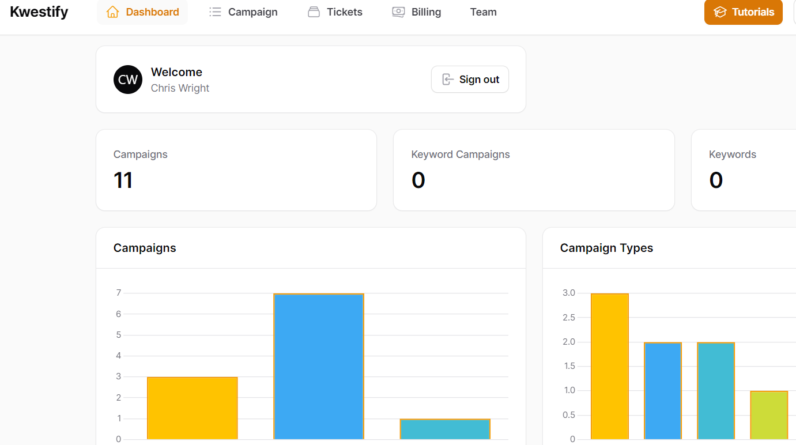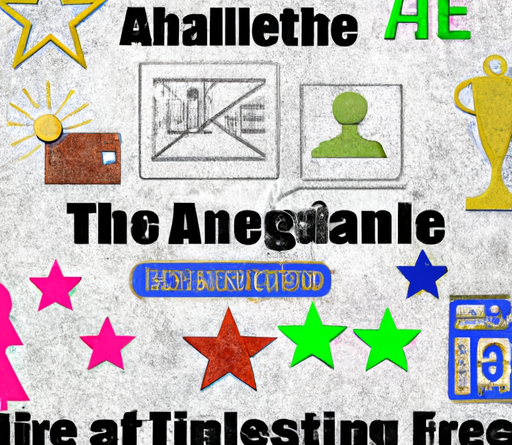
In this article, you will learn about the importance of writing engaging and captivating content for affiliate marketing. We will explore how well-crafted content can drive traffic to your affiliate website and increase conversions. Additionally, we’ll discuss effective strategies for creating compelling content that resonates with your target audience, such as using storytelling techniques and incorporating persuasive language. By the end, you will have a solid understanding of how to create content that not only promotes your affiliate products but also builds trust and credibility with your readers.
Understanding Affiliate Marketing
Affiliate marketing is a strategy where individuals or businesses partner with brands and promote their products or services in exchange for a commission. It is a symbiotic relationship where both the affiliate and the company benefit from the partnership.
What is affiliate marketing?
Affiliate marketing is when someone promotes a product or service and earns a commission for every sale or lead that is generated through their referral. It is a form of performance-based marketing where affiliates are rewarded for their marketing efforts.
How does affiliate marketing work?
Affiliate marketing works by creating a unique affiliate link or code that is given to the affiliate. This link or code is then used in the promotion of the product or service. When someone clicks on the affiliate link and makes a purchase or completes a desired action, the affiliate earns a commission.
Benefits of affiliate marketing
There are several benefits of participating in affiliate marketing. Firstly, it allows individuals or businesses to earn passive income. Once the initial setup is done, affiliates can continue to earn commissions for as long as their referrals make purchases.
Additionally, affiliate marketing allows for flexibility and freedom. Affiliates can choose the products or services they want to promote based on their interests and knowledge. They can also work from anywhere and at any time, making it a convenient option for those who want to earn income on their own terms.
Importance of Writing Content
Why is content important in affiliate marketing?
Content plays a vital role in affiliate marketing as it helps affiliates attract and engage their target audience. It has the power to inform, educate, and persuade potential customers to make a purchase or take action.
Without quality content, affiliates may struggle to effectively communicate the benefits and value of the products or services they are promoting. Content allows affiliates to establish themselves as knowledgeable and trustworthy authorities in their niche, increasing their chances of earning commissions.
How does quality content help in affiliate marketing?
Quality content helps affiliates build credibility and trust with their audience. By providing valuable information and insights, affiliates can position themselves as experts and reliable sources of information. This builds confidence in their recommendations and encourages readers to take action.
Additionally, quality content helps affiliates optimize their websites for search engines. By incorporating relevant keywords and providing valuable content, affiliates can improve their website’s visibility in search engine rankings, driving organic traffic and potential customers to their site.
Types of content for affiliate marketing
There are various types of content that affiliates can create to effectively promote products or services. These include:
- Product reviews: Detailed and unbiased reviews that highlight the features, benefits, and drawbacks of a product
- How-to guides: Step-by-step tutorials or guides on how to use or benefit from a product
- Comparison articles: Comparisons between similar products to help readers make informed decisions
- Case studies: Real-life examples of how a product or service has positively impacted someone’s life or business
- Educational content: Articles, videos, or podcasts that provide valuable information related to the products or services being promoted
Researching Your Niche
Identifying your target audience
Before creating content, it is essential to identify and understand your target audience. This involves researching their demographics, interests, and pain points. By knowing who your audience is, you can tailor your content to address their specific needs and interests, increasing the chances of effectively engaging them.
Analyzing competitor websites
Analyzing competitor websites can provide valuable insights into what is working in your niche. By studying the content, design, layout, and strategies of successful competitors, you can gain inspiration and identify areas for improvement in your own content creation.
Finding profitable affiliate programs in your niche
Researching and finding profitable affiliate programs in your niche is crucial for success in affiliate marketing. Look for programs that offer competitive commission rates, provide marketing resources, have a good reputation, and align with your audience’s interests. Joining the right affiliate programs will increase your chances of earning significant commissions.
Creating Engaging Headlines
The importance of compelling headlines
Compelling headlines are essential in capturing the attention of your audience. They serve as the first impression of your content and can determine whether a reader clicks on your article or moves on to something else. A well-crafted headline should be clear, concise, and offer a benefit or promise to the reader.
Tips for writing catchy headlines
To write catchy headlines that grab attention, consider the following tips:
- Use numbers: People are often drawn to headlines that promise a specific number of tips, techniques, or benefits.
- Ask questions: Questions pique curiosity and compel readers to find out the answer.
- Use strong adjectives: Incorporate powerful, descriptive words that evoke emotion or create a sense of urgency.
- Address pain points: Identify and address the problems or challenges your audience may be facing.
- Offer solutions: Position your content as a solution to your audience’s problems or needs.
Using keywords in your headlines
Incorporating relevant keywords in your headlines can help improve your search engine rankings and attract organic traffic. Conduct keyword research to identify the words or phrases your target audience is using to search for information related to your niche. Incorporate these keywords naturally in your headlines to increase your website’s visibility in search engine results.
Writing Informative Product Reviews
Structuring your product review
To write an effective and informative product review, consider the following structure:
- Introduction: Provide an overview of the product and its purpose.
- Features and benefits: Highlight the key features and benefits of the product.
- Personal experiences and opinions: Share your personal experiences or opinions about the product.
- Pros and cons: Present a balanced view by discussing the advantages and disadvantages of the product.
- Conclusion: Summarize your thoughts and make a recommendation based on your review.
Highlighting the key features and benefits
When writing a product review, it is crucial to highlight the key features and benefits that make the product worth considering. Focus on how the product solves a problem or meets a need. Use specific examples and provide evidence to support your claims.
Adding personal experiences and opinions
Adding personal experiences and opinions to your product review adds authenticity and credibility. Share how the product has personally benefited you or others. Be honest and transparent about your experiences, as readers value genuine recommendations.
Crafting Convincing Call-to-Actions
What is a call-to-action?
A call-to-action (CTA) is a statement or instruction that tells your audience what action you want them to take. It is a crucial element in affiliate marketing as it guides readers towards making a purchase or taking the desired action.
Writing effective call-to-action phrases
To write effective call-to-action phrases, consider the following tips:
- Use action verbs: Start your CTA with strong action verbs that create a sense of urgency.
- Be clear and specific: Clearly state the action you want your audience to take and make it easy for them to do so.
- Offer a benefit: Highlight the benefits or rewards your audience will receive by taking the desired action.
- Create a sense of urgency: Use words like “now,” “limited time,” or “exclusive offer” to create a sense of urgency and encourage immediate action.
Placing call-to-actions strategically
Place your call-to-actions strategically throughout your content to maximize their impact. Insert them within your product reviews, at the end of your articles, or within relevant sections. Make sure they are noticeable and stand out from the rest of your content.
Utilizing SEO Techniques
Understanding search engine optimization
Search engine optimization (SEO) is the practice of optimizing your content to improve its visibility and ranking in search engine results. By implementing SEO techniques, you can attract organic traffic and increase your chances of earning commissions.
Choosing relevant keywords
Keyword research is crucial for identifying the words or phrases your target audience is using to search for information related to your niche. Choose relevant keywords and incorporate them naturally throughout your content, including in your titles, headings, and body text. Use them in a way that helps search engines understand the context and relevance of your content.
Optimizing your content for search engines
To optimize your content for search engines, consider the following techniques:
- Use meta tags: Optimize your meta title and meta description to accurately summarize your content and entice readers to click.
- Create high-quality and engaging content: Search engines value content that provides value to readers. Make sure your content is informative, well-written, and engaging.
- Optimize your website speed: Slow-loading websites can negatively impact your search engine rankings. Compress images, minimize code, and use a reliable hosting provider to improve your website’s speed.
- Build high-quality backlinks: Backlinks from reputable websites can improve your search engine rankings. Seek opportunities to collaborate with other bloggers or websites in your niche to gain valuable backlinks.
Building Trust with Authenticity
Sharing honest and unbiased opinions
Building trust with your audience is crucial in affiliate marketing. Share honest and unbiased opinions about the products or services you promote. Readers appreciate transparency and value recommendations that come from a place of authenticity.
Providing transparent information
Be transparent with your audience by disclosing any affiliations or partnerships you have with the brands you promote. Clearly state that you may earn a commission if they make a purchase through your affiliate links. This openness fosters trust and credibility with your audience.
Engaging with your audience
Engaging with your audience is key to building relationships and establishing trust. Respond to comments on your website or social media platforms, answer questions, and provide additional information when requested. By actively engaging with your audience, you show that you genuinely care about their needs and concerns.
Promoting Your Content
Utilizing social media platforms
Social media platforms are powerful tools for promoting your affiliate marketing content. Create profiles on relevant platforms and share your content regularly. Engage with your followers, participate in discussions, and join relevant groups or communities to expand your reach.
Guest posting on related blogs
Guest posting on related blogs allows you to reach a wider audience and build credibility in your niche. Look for established blogs in your niche that accept guest posts and offer valuable content that aligns with their audience’s interests. Include a link to your website or relevant articles within your guest post to drive traffic back to your site.
Email marketing strategies
Email marketing is an effective way to nurture relationships with your audience and promote your affiliate marketing content. Build an email list by offering valuable content or incentives in exchange for email addresses. Send regular newsletters or updates that include your content, recommendations, and exclusive offers.
Conclusion
In summary, writing content is a crucial aspect of successful affiliate marketing. Quality content helps affiliates attract and engage their target audience, establish credibility, and drive sales or conversions. By understanding their niche, creating compelling headlines, writing informative product reviews, crafting convincing call-to-actions, utilizing SEO techniques, building trust with authenticity, and promoting their content effectively, affiliates can maximize their chances of success. Remember to always prioritize the needs and interests of your audience, as they are the foundation of your affiliate marketing business.









